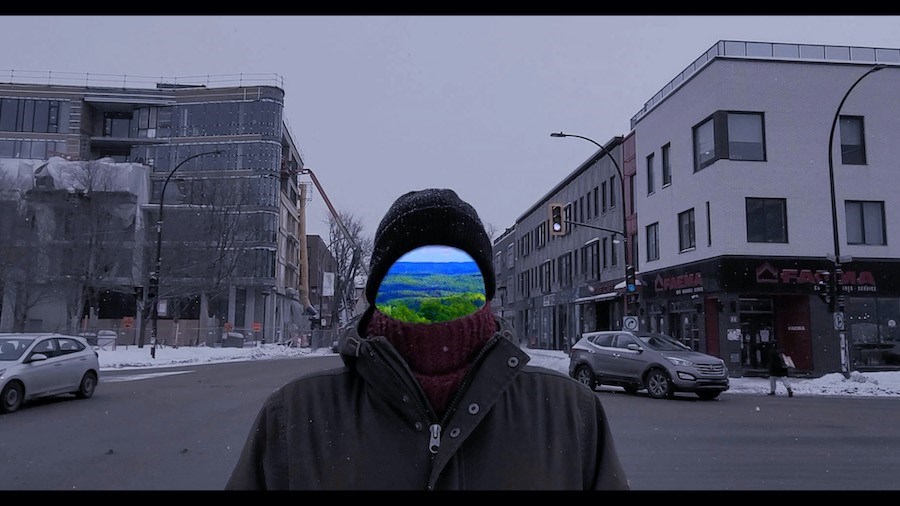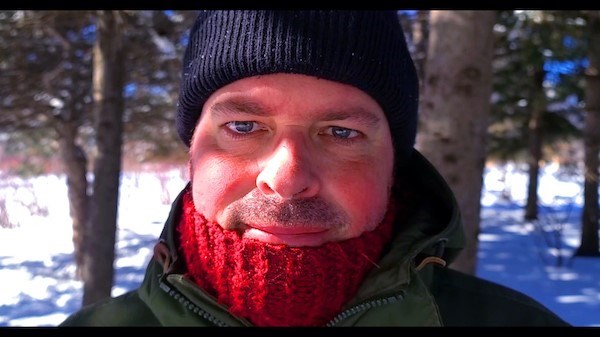 "The Future Innu"Wapikoni Mobile, with permission
"The Future Innu"Wapikoni Mobile, with permission
Wapikoni Mobile wins big at this year's Film Fest: the organization wins MH Media Arts Educator Award and The Future Innu by Stéphane Nepton wins People’s Choice and Experimental Awards.
Wapikoni Mobile is the Québécois nonprofit that produced the five stellar, profound films submitted to MY HERO, directed primarily by Indigenous youth.
The organization is a mobile training, audiovisual and musical creation studio dedicated to Indigenous youth and their communities.
According to Wapikoni:
Our mission is to promote First Nations, Inuit and Métis expression through film and music creation and diffusion. By offering Indigenous talents personalized support in the form of mentoring, our organization contributes to their personal, professional and creative development while respecting their narrative sovereignty. Wapikoni provides them with a distribution service that promotes their works throughout Canada and the world, encouraging the transmission of knowledge and awareness of the realities of First Peoples.
Since 2004, Wapikoni is a collection of more than 1300 short films and 900 musical creations, with 45 communities and 36 nations visited in Canada and abroad, more than 220 awards and mentions, and a strong presence in hundreds of festivals and events.
The Future Innu
This year a Wapikoni Innu filmmaker, Stéphane Nepton, who directed the short documentary film, The Future Innu, is being honored with both the prestigious MY HERO’s People’s Choice Award and Experimental Award at MY HERO’s 18th International Film Festival.
The film is about an urban Innu who mourns the absence in his life of the inter-generational knowledge of his people. Written in beautiful, poetic prose, he goes on his greatest adventure: to find out where he came from and to build upon the language, resilience, and strength of his people to become an agent of change.
The Innu are an Algonkian-speaking people whose homeland—Nitassinan—lies in eastern Quebec-Labrador peninsula of present-day Canada. Over 16,000 Innu live in eleven communities in Quebec and two in Labrador.[i] Since the 19th century, colonialism and outside economic interests have ravaged the land, sustenance, and cultures of the Innu and many Innu have moved to the cities and towns for jobs.
Nepton introduces his film: “It is an ode to my land and to my double identity as an urban Indigenous person. A story that is both personal and poetic.” His words in his interview with MY HERO below speak for themselves.
 Stéphane Nepton, FilmmakerWapikoni Mobile, With permission
Stéphane Nepton, FilmmakerWapikoni Mobile, With permission
Could you tell us a little bit about yourself?
Currently I am a trainer and consultant in techno-pedagogy. I organize digital workshops with different partners like Wapikoni and I am the co-founder of the Nomadic UHU Labos initiative-- digital workshops related to inter-generational transmission in indigenous communities. I am also a digital artist. I am experimenting with art assisted by artificial intelligence.
How long have you been filming? What are other films you have done?
The Innu of the Future is my first film, but I have often experienced video editing in various artistic projects.
What led you to make this movie?
In fact, all that has come from a need for personal acknowledgement that I pondered on for a very long time. I had this imposter syndrome about my identity because I had never lived in community, I did not know my language—it was not transmitted to me. Missing cultural health, I had to reappropriate myself because it was not transmitted to me as it was supposed to be. So when I saw on Facebook an opportunity to participate in the production of a short film, I applied without knowing where it would lead me: it I was like diving into my fears and my uncertainties, but in the end it was a pivotal time in my life and a realization of how I define myself as an urban INNU. Finally, I am very proud of the result at both levels of the film: the narrative, where I am talking about my fears and my questioning about life and the visuals, where I really tried to explore techniques to illustrate my words.
What do you think is the importance of the film, and what are its strengths?
Working alone in the heart of a pandemic in a virtual environment jostled me in my scripting and filmmaking, but also in the design of my graphic universe. In creating my film, I tried a definite descriptive approach in its narration, but strangely in its visual aspect I discovered surprising and almost involuntary links that acted as a relationship marker between my images and my script. I'm talking about my father and my intimate thoughts on my identity: I expose my personal vulnerabilities and all that by counterbalancing raw images of the city with the soothing images of the territory. I firmly believe that my unconscious skills were introduced into my creative process.
Could you tell us about the film's production process: Who was on your team?
I directed my movie entirely alone as part of the virtual studio Wapikoni.
How was the idea of the film born? How was it for you to do this movie?
It was a direct and deep plunge in my fears and my uncertainties, but in the end it was a pivotal moment in my life and in the affirmation of my identity as an urban INNU. I am very proud of the final result: Innu of the Future is my story. It is an intimate awareness that seems to resonate with several urban Aboriginal people. But the real Innu of the future, or rather the aboriginals of the future, they are all those who, tomorrow--in 5 years or in 100 years--will take positions, will oppose social inequalities, will create a positive change for their peers contributing to the pride and health of their people, transforming resilience into resurgence.
What were the challenges you encountered, successes and strengths?
I had to film outside at temperatures around the -20 degrees! My technique of Hyper Laps, that of filming a long time by moving really slowly, gave me serious frostbite! Working with extreme temperatures means that I had trouble with the battery of my cell, with which I completely shot my movie with.
Who helped make this possible? Who helped to make your project a reality?
When we start with this kind of introspection it's crucial to have a support of our loved ones and I had this luck with the woman I love, the one who shares my life. Andrea encouraged me, directed and supported me in moments of uncertainties and writing. Of course, all of the Wapikoni team was still there to support me.
Do you have a mentor or a person you admire?
Not particularly, but I would say the complete organization of Wapikoni.
[i] 1997, Peter Armitage, The Newfoundland and Labrador Heritage Website https://www.heritage.nf.ca/articles/indigenous/innu.php
Page created on 11/18/2022 5:45:30 PM
Last edited 11/18/2022 6:09:07 PM
